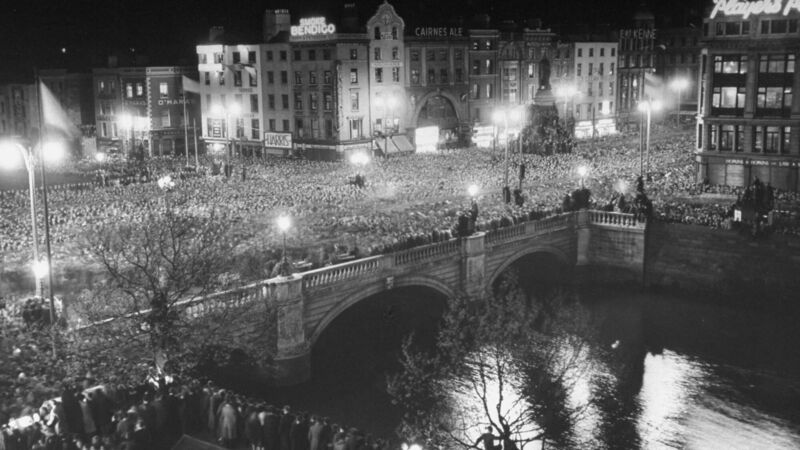Party like it's 1949: What to expect at the Dublin Theatre Festival

The scene on O'Connell Bridge in Dublin as Ireland was declared a republic in 1949. Picture: Larry Burrows/The LIFE Picture Collection via Getty Images
“We need you and you need us,” says actor Niamh McCann. She’s speaking via Zoom, of course, but is discussing something that won’t, miracle of miracles, be happening just on a screen, but rather as part of this year’s Dublin Theatre Festival.
Organisers were frantically trying to work out what the latest Covid restrictions mean for the event, and while some shows have been cancelled, they’re confident that some parts of the reconceived festival can take place.



